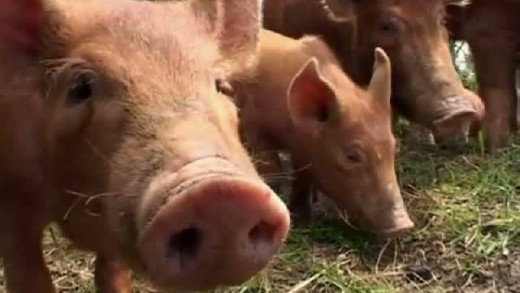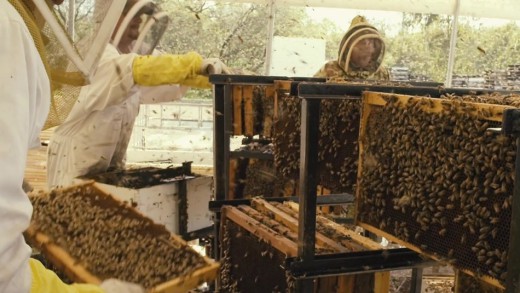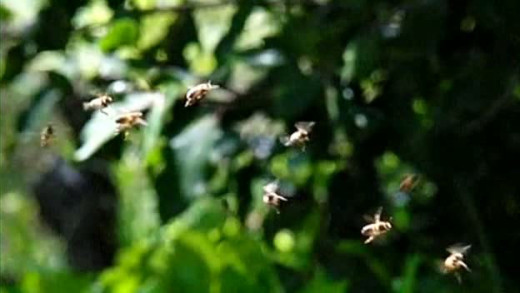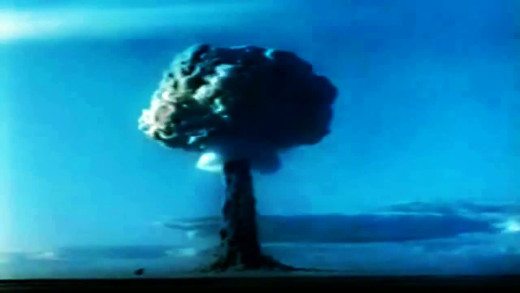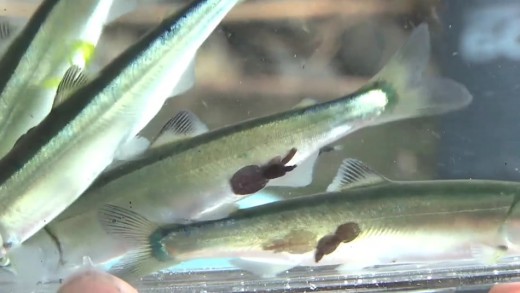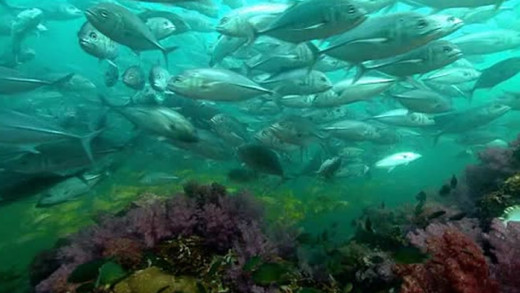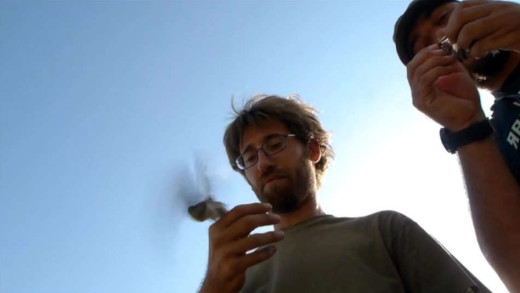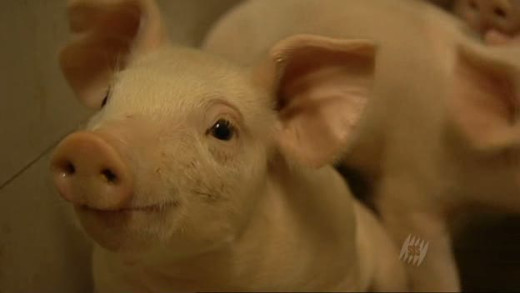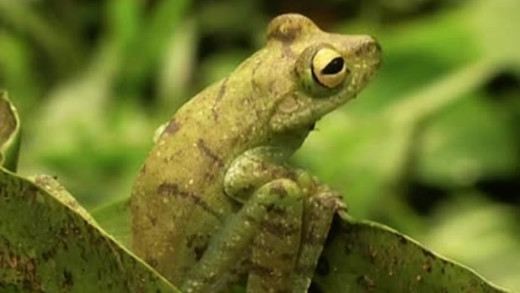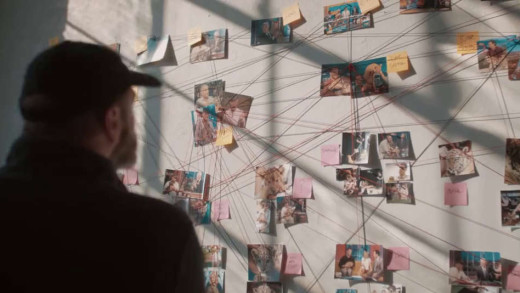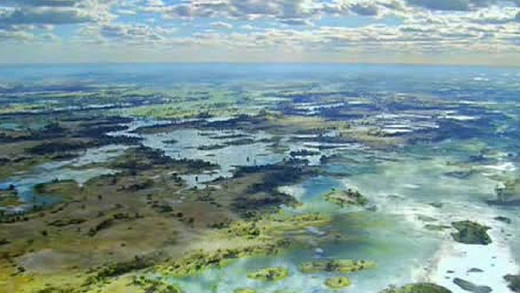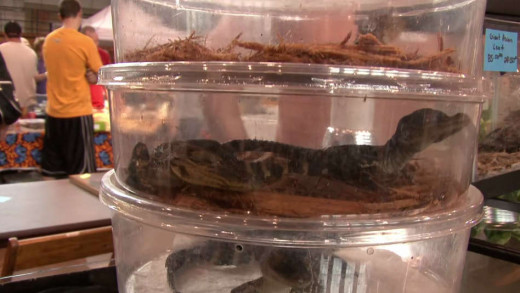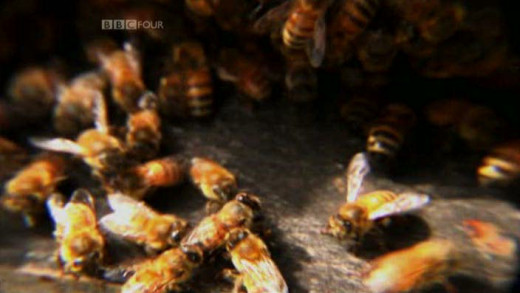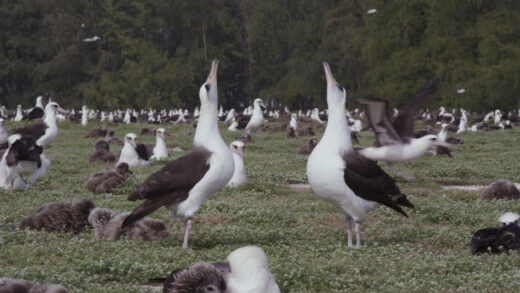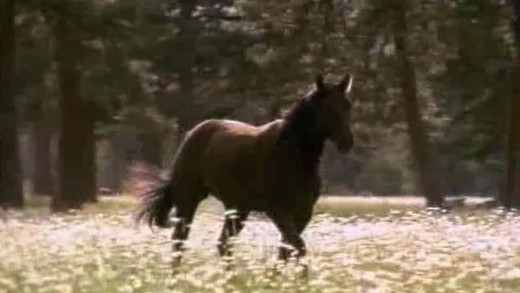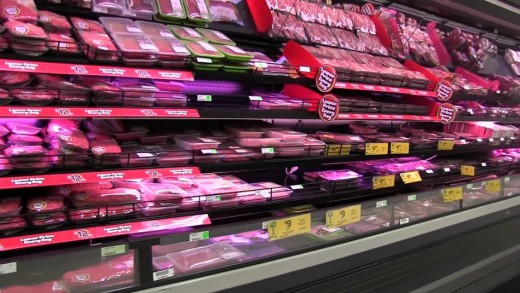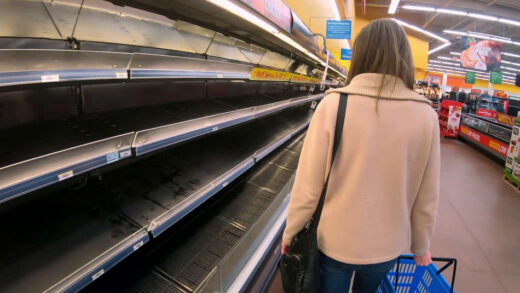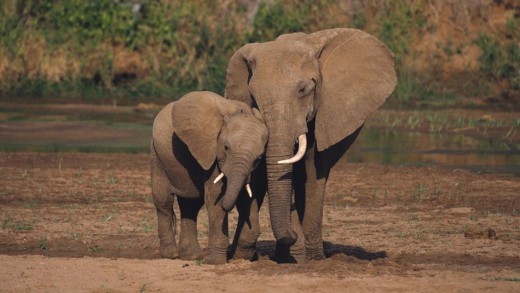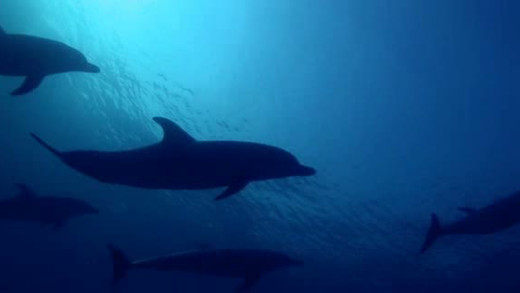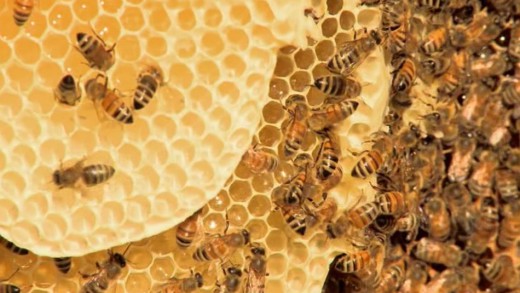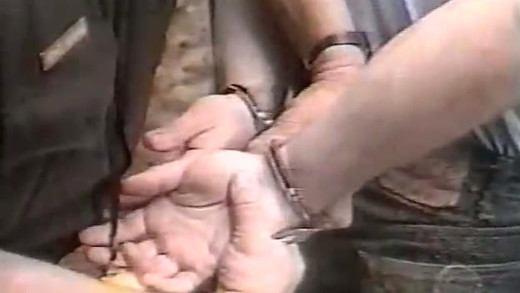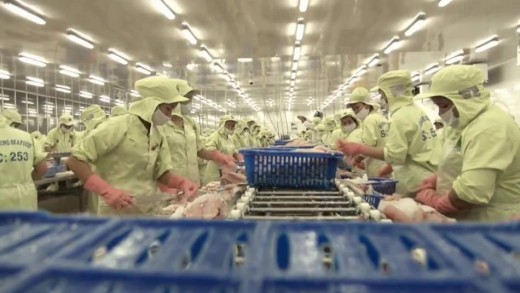Pig Business investigates the rise of factory farming, a system which abuses animals, pollutes the environment, threatens human health through dangerous overuse of antibiotics and destroys rural communities. The film shows how this system which was developed in the United States and is now being used in eastern Europe from where the pork, often produced below legal animal welfare standards, is exported to other EU countries putting local farmers out of business...
With a lens of torturous mechanistic science, as well as the commercial perspective from farmers and commodity bee-keepers alike, More Than Honey is a film about the insanity of industrial agriculture and the consequential collapse of honeybee populations throughout the world. By looking through some of the industrial operations in California, Switzerland, China and Australia, More Than Honey is a visual exploration of colony collapse, drawing attention to the many symbiotic relationships that go unrecognised and uncared for by industrial operations and commercial food practices. If bees are so important to the health of so many other species of animals and plants and foods, how can we stand by and allow them to be killed?
Bees have been mysteriously disappearing, literally vanishing from their hives. Known as 'Colony Collapse', the phenomenon has brought the commercial food industry to crisis. Commercial honeybee operations pollinate monocrops that make up one out of every three bites of food in the western world. Vanishing Of The Bees follows beekeepers David Hackenberg and Dave Mendes as they strive to keep their bees healthy and fulfil pollination contracts across the United States; examining the alarming disappearance of honeybees and the greater meaning it holds about the relationship between industrial culture and ecology...
The microbeads of plastic contained in cosmetics, shower gels, soaps, toothpastes, and many other products, of course directly end up in rivers and oceans, fish and birds, as well as other creatures of the sea and indeed land. But if that isn't problematic enough, these tiny plastics are only part of the bigger problem of plastic prolifically choking the ocean to death. For all plastics, big or small, break down and fail into smaller plastic particles, having cumulative biological and toxicological effects. This short television report takes a quick look into how marine life is effected by all this, and why we should do something about it before it's too late.
The myth that humans are superior to all other life forms is a fundamental and unquestioned premise of dominant culture. It is an old historical idea, rooted in colonialism, and is deeply embedded in religion and science. It is one of the root causes for the destruction of the natural world, animal cruelty, war, the extinction of species and other immense problems. The Superior Human? challenges this arrogant and self-destructive ideology; unwinds the myths, using examples and common sense.
Salmon Confidential follows renowned biologist Alexandra Morton as she finds that wild salmon are testing positive for dangerous European salmon viruses associated with industrial salmon farming worldwide, and then, how a chain of events is set off by the Canadian government to suppress the findings. Scientists are gagged, research suppressed, evidence not allowed. With the industrial fish farms having moved into Morton's neighbourhood in the late 1980s, since then, there has been a serious decline in wild salmon in the region. So, tracking her findings, the film follows Morton and her team as they move from courtrooms, to Canada's most remote rivers, Vancouver grocery stores and sushi restaurants, providing insights into the workings of government agencies tasked with managing the 'safety of fish and food supply,' that always seem to put industry and the needs of corporations over the natural world, time and time again. Salmon Confidential becomes a call to action to help save the wild salmon from these atrocities, before they're completely wiped out forever.
The Blue Planet is a comprehensive series of films about the natural history of the world's oceans. Each film in the series examines a different aspect of marine life—from the Arctic and Antarctica, to the depths of wide open oceans and coral reefs, to the coastlines and tides of the Galápagos Islands, Russia, Australia, Argentina and elsewhere.
Migratory Songbird populations are drastically collapsing. Many species have already been driven extinct. But yet, as an endangered species, the birds are still targeted by poachers. Millions of birds are unlawfully slaughtered each year for large sums on the black market. Emptying the Skies explores the wonder of these marvelously tiny globe-flying birds, along with the story of the Committee Against Bird Slaughter, an action group of citizens who have dedicated their lives to directly stop and confront the poachers. They disrupt and destroy trapping, freeing as many birds as possible, changing the world one bird at a time.
Patent applications for the "Monsanto Pig" were published in February 2005 at the World Intellectual Property Organisation (WIPO) in Geneva. A researcher monitoring patent applications uncovered the fact that Monsanto is seeking patents not only on methods of breeding, but on actual breeding herds of pigs as well as the offspring that result. And as the seeds of the world are slowly being taken over by Monsanto, the company is aiming to extend its control to animals by patenting and thus privatising gene sequences--all of which are found and occur naturally and are not invented...
All over the world, species are going extinct at an extraordinary rate--currently around 250 per day--a scale never before seen. Call of Life investigates the growing threat to Earth’s life support systems from this unprecedented loss of biodiversity by exploring the causes, scope, and potential effects of this mass extinction. The film also looks beyond the immediate causes of the crisis to consider how our cultural and economic systems, along with deep-seated psychological and behavioral patterns, have allowed this situation to develop and be reinforced, and even determine our response to it. Call of Life tells the story of a crisis not only of nature, but also of human nature; a crisis more threatening than anything human beings have ever faced...
The Conservation Game follows the story of Tim Harrison, an Ohio cop who stumbles upon a bombshell discovery while undercover at an exotic animal auction. He starts to suspect that America's top television celebrity conservationists may be secretly connected to the exotic pet trade. As his investigation leads deeper into the secret world of the big cat trade, Tim and his team take their fight to the halls of Congress, pressing lawmakers to pass federal legislation that would end the private breeding and exploitation of these endangered animals. But when opposition comes from an unexpected source, Tim is forced to face the demons of his own past, while wrestling with the consequences of exposing his childhood hero.
Having received a tip from an employee at a farm where animals were being abused, including a claim that pigs were being hung by chains and strangled to death as a form of 'euthanasia,' the Humane Farming Association (HFA) turns to an undercover investigator going by the name of "Pete." While wearing a hidden camera, Pete secretly films while he works undercover as a farmhand at Wiles documenting numerous incriminating scenes, including piglets being tossed into crates from across a room, impregnated sows held in pens impeding their ability to move, an unhealthy piglet being hit against a wall to kill it, and a sick sow being hung by a chain from a forklift until it choked to death. Having obtained this evidence, Pete concludes his investigation and quits the job at the farm. In the subsequent trial carried by the HFA, the prosecutors and the defence argue the legality and morality of these practices. The presiding judge describes it as "distasteful and offensive," however, rules that such are the realities of factory farming...
Following on from the series Planet Earth which looked at various forms of life across the globe, Planet Earth -- The Future highlights the issues of conservation and the future of the environments and species featured in the Planet Earth series. Using interviews with the film-makers and eminent figures from the fields of science, conservation, politics, and theology, the series poses questions around the effectiveness of the environmental movement, and the future of the planet. A lot needs to change in order to ward off catastrophe...
The Elephant in the Living Room examines the culture of raising the world's most dangerous animals as household pets throughout the United States. Set against the backdrop of a heated national debate, the film chronicles the extraordinary story of two men at the heart of the issue: Tim Harrison, an Ohio police officer whose friend was killed by an exotic pet; and Terry Brumfield, a man who struggles to raise two African lions as his own family. In the first of many unexpected twists, the lives of these two men collide when Terry's male lion escapes its pen and is found attacking cars on a nearby highway.
Bees are the number one insect pollinator on the planet, helping the reproduction of many species of plants—apples, berries, cucumbers, nuts, cabbages, cotton—all of which industrial agriculture blindly relies on. But the bees are dying in their millions. Empty hives have been reported across the globe. In England, the matter has caused bee-keepers to march on parliament to call for research. But perhaps we can know what's going on already. Who Killed The Honey Bee? is a mainstream-media investigation into the collapse of bee populations from a tragic anthropocentric perspective, travelling across the farms of California to the flatlands of East Anglia to the outback of Australia. The film-makers talk to bee-keepers whose livelihoods are threatened by colony collapse disorder, to scientists that are looking at the problem, to Australian bee-keepers who are making a fortune replacing dying bees in other countries for industrial agriculture. Is the reason for declining bee populations due to some kind of plague, pesticides, malnutrition or combination of these? Or is the real underlying answer something more fundamental?
Poisoned Waters investigates some of the root causes of what we see worldwide with ecological collapse, dead-zones and pollution effecting oceans, rivers and watersheds. With a focus on major waterways in the United States such as the Chesapeake Bay and Puget Sound, the film follows the culmination of decades of evidence that today's systemic and growing environmental collapse comes not only from the toxic activities of industry, agriculture and massive suburban development; but also from the permeated satiety of chemicals in prolific consumer products such as face-creams, deodorants, prescription medicines and household cleaners. This is a startling reminder of the compounding threat facing our world and the need to act imperatively.
Albatross is a collaborative film project with artist Chris Jordan and photographer Manuel Maqueda. The film is the culmination of many years of research and study of the issue of ocean plastic pollution, with a paricular focus on how it effects species of Albatross on a tiny atoll in the centre of the vast North Pacific Ocean. The resulting film is an experience that is devastating, not only for the plight of suffering birds, but also for what this crisis reflects back about the destructive power of the culture of mass consumption, and its damaged relationship with the living world.
Humanity is absolutely dependent on animals as part of life. In industrial society however, this has extended to animals as pets, 'entertainment' and for expendable use in scientific research -- animals are tortured for 'scientific tests', locked in cages as pets and at the zoo and are bred on mass for cheap meat. What does this say about industrial civilisation? Earthlings conducts an in-depth study into pet stores, puppy mills and animals shelters, as well as factory farms, the leather and fur trades, sports and entertainment industries, and the medical and scientific profession, using hidden cameras to directly show the day-to-day practices of some of the largest industries in the world...
Lucent
Lucent is a grim accounting of the realities of factory farming in Australia. Documented are some of the conditions and day-to-day operations of industrial meat production—from farrowing crates or cages, to artificial insemination, to so-called free range; and of course, to mechanistic slaughter devoid of exchange. The film focuses mainly on pigs but also briefly looks at the issues facing other animals raised and killed for food in industrial conditions.
Robert Kenner and Melissa Robledo team up with authors Michael Pollan and Eric Schlosser to examine the modern food industry's efficiency and vulnerabilities as a follow-up to the first documentary of the same title. This film focuses on corporate consolidation in the food and agriculture business in the United States, while raising questions about the future of the industrial food system.
END:CIV
By examining the modern culture of industrial civilisation and the persistent widespread violence and environmental exploitation it requires, END:CIV details the resulting epidemic of poisoned landscapes and shell-shocked nations, while further delving into the history of resistance and the prospect of fighting back against such abuse. Detailed is an overview of the environmental movement analogous with the historical whitewashings of the supposedly 'pacifist' social struggles in India with Gandhi and Martin Luther King in the United States; the rise of greenwashing and the fallacy that all can be repaired by personal consumer choices. Based in part on 'Endgame,' the best-selling book by Derrick Jensen, END:CIV asks: If your homeland was invaded by aliens who cut down the trees, poisoned the water, the air, contaminated the food supply and occupied the land by force, would you fight back?
By taking the example of documenting the conditions in zoos and circus shows, An Apology to Elephants is a film about the institutional cruelty to animals and their environments. In the circus, elephants are whipped, beaten and struck with hooks—a pain-compliance technique called bull-hooking—to perform tricks and behave according to the requirements of captivity. The film also looks at the prevalence of the ivory trade, stating that the current elephant killing rate would lead to extinction of the species in ten years. The film is a call to more than an apology, it's a call to stop these sadistic institutions and repair the damage done to animals and the environment by this culture.
The Cove analyses and questions Japan's dolphin hunting culture, being a call to action to halt mass dolphin kills, to change commercial fishing practices and to inform and educate the public about the risks and ever increasing hazard of mercury poisoning from dolphin meat. Told from ocean conservationist Richard O'Barry's point of view, The Cove documents a group of Taiji fishermen who engage in mass dolphin kills, which in large part, are motivated by the tremendous revenue generated for the town by selling some of the captured dolphins to aquariums and marine parks. The dolphins that are not sold into captivity are then slaughtered in the cove and the meat is sold in supermarkets...
In 2006, newspapers around the United States began to publicise a unnerving phenomenon. Honeybees were a mysteriously disappearing from beehives all around the nation. Queen of the Sun: What Are the Bees Telling Us? investigates the multiple angles of this epidemic. It also explores the historical and contemporary relationship between bees and humans, showing alternative and inspiring beekeepers from all around the globe as they keep bees in natural and holistic ways. From Gunther Hauk in the United States to Massimo Carpinteri in Italy, each has unique philosophical and spiritual insights into their bees and are striving to keep their bees safe from pesticides, and the other causes behind colony collapse.
Testify: Eco-Defence And The Politics Of Violence examines the forces that drive revolutionary environmental activism, using examples of direct-actions from the Animal Liberation Front (ALF) and the Earth Liberation Front (ELF) to illustrate tactics...
In the past 40 years, global consumption of fish has doubled. Having decimated natural fish populations globally, the industrial food system has turned to mass-scale farming practices in order to sustain the unsustainable, supplying huge supermarket chains and commercial food outlets with cheap processed fish products. What do we know about this and these processes? And what of the lives of the fish? What about their health and the health of the waters in which they're taken? Fillet-Oh!-Fish is the result of yet another indictment of the industrial food system, agriculture and factory farming—all of which have egregious implications to the health and well-being of species, and the planet as a whole. We see myriad mixes of pesticides and other chemicals, leading to toxic rivers and streams, the pervasiveness of the industrial food system, with glimpses into working conditions and processing methods, as well as the perniciousness of globalisation, with the world-wide reach of this crazy system that has hijacked a fundamental life-giver: food.
